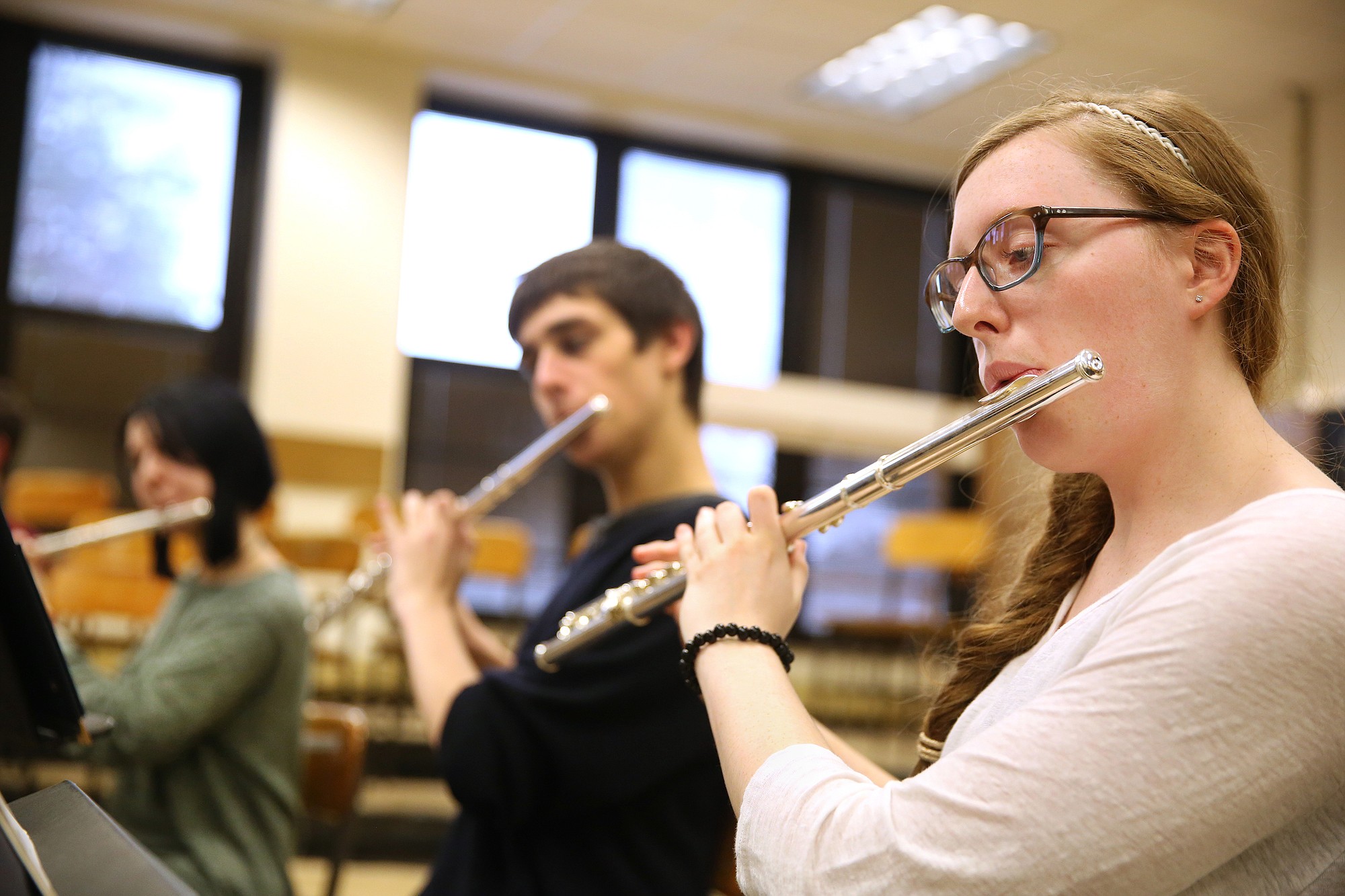CHICAGO — For New Trier High School sophomore Sophia Pellar, a pair of special earplugs recently donated by a North Shore audiologist has put an end to the pain she suffered when playing flute in the pep band.
Still, the Mozart-loving north suburban Kenilworth teen giggles nervously when she explains that the earplugs — tethered by a bright blue string and designed to protect musicians from noise-induced hearing loss — have yet to become part of her regular repertoire.
“I wear earplugs during pep band season, because it can be crazy loud,” said Pellar, 16. “But the thought of wearing them every day is a little embarrassing.”
With research indicating that as many as 1 in 5 teens suffers from hearing loss, much of it caused by noise damage, more doctors and school band directors are urging kids to take precautions and, in some cases, are providing earplugs. Yet experts say their messages are being undermined by an “uncool” stigma similar to that which once impeded the use of bike helmets, shin guards and sunscreen.
The next generation of music educators now being trained at colleges and universities are learning that their future lesson plans should convey the importance of students protecting their hearing during rehearsals and performances. Still, officials say that even the most vigilant parents typically are unaware of the need for their children to take precautions.
Sophia’s mother, Chimene Pellar, said that while she’s thrilled that her three music-loving teens enjoy the band program at New Trier, she became alarmed recently when she learned that Sophia is often in pain after playing her flute in close ranks with her fellow musicians.
“I had never thought of it at all … and she has been playing the flute since she was in fourth grade,” said Pellar, a physician. “I also have concerns when I walk by my kids when they have their earbuds in and I can still hear their music. And the longer they listen, the louder it seems to get.”
Audiologists who study teen hearing loss say high-decibel music from instruments, concerts and earbuds — as well as other loud noises — can harm the hair cells in the ear’s cochlea, leading to cumulative hearing damage that is irreversible.
“We’re seeing a rise in the number of adolescents with hearing loss, which is not a surprise when you look at our society, which has gotten busier, nosier and overstimulated,” said Dr. Henry Ou, an associate professor of pediatric otolaryngology at Seattle Children’s Hospital.
“Sound is just energy, and when it’s delivered at a high amplitude, it can cause damage,” Ou said.
Conversation starters
The National Association for Music Education urges teachers and band directors to address the dangers of noise-induced hearing loss during classes and rehearsals by, for example, ensuring that students are not performing at high volume levels for an extended time.
“It’s something music educators talk to their students about all the time, and one of those issues where the band directors are actually ahead of mom and dad in being concerned about the kids,” said Michael Butera, the association’s executive director and CEO.
Music teachers and band directors can encourage and model safe behavior, Butera said, but requiring student musicians to wear earplugs is another matter entirely.
Teachers “don’t have the power of the school boards or the states, and the first time you talk about any regulations or mandates, everyone goes nuts,” Butera said. “But it’s important for teachers to be aware of the hearing loss issue and for them to be able to discuss it with their students.”
At Barrington High School, band director Randy Karon said he often talks to his students about the need to be vigilant about protecting their hearing, both during rehearsals and performances and outside of the band program, too.
“My general rule is, if your ear feels uncomfortable at any time, put a pair of earplugs in,” said Karon, who keeps a large jar in the band room stocked with the standard-style foam earplugs for his students.
After decades of playing trumpet and directing student musicians, Karon said he also is increasingly aware of the need to protect his own hearing.
“Music is my livelihood, and if I can’t hear, I’m in trouble,” he said.



